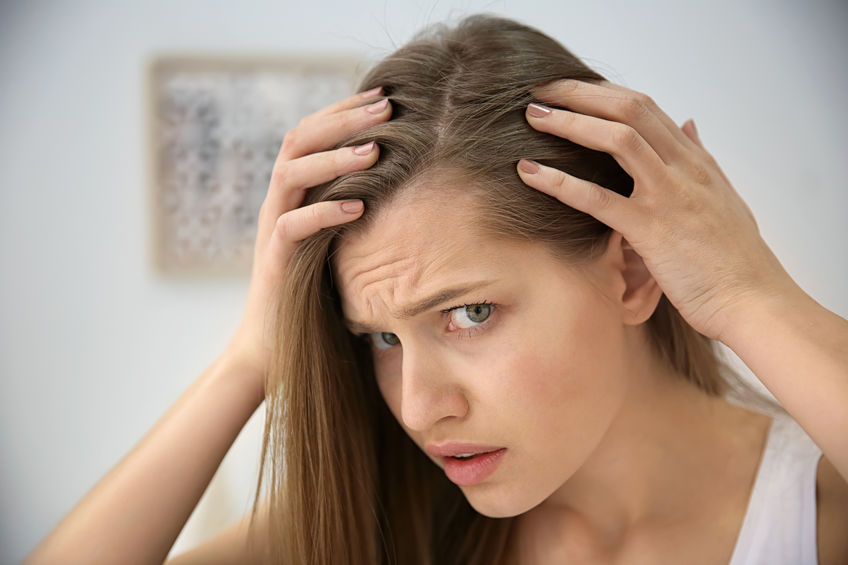Table of Contents
Hair Loss: Myths vs. Facts
Alopecia, often known as hair loss, is a type of hair loss that can occur anywhere on the human body, but the most common location is on the head and both men and women are affected by alopecia. There is a lot of misleading information out there concerning this ailment, which has caused a lot of misunderstanding. The majority of information about the reasons for hair loss is based on fallacies that need to be debunked. Read this article to learn more about facts as well as the myths around this ailment.
What Really is Hair Loss?
It is a frequent ailment that can affect not just the scalp but also other sections of the body. Alopecia is more typically seen in adults, however, children may be impacted as well. According to the American Academy of Dermatology, dropping 50-100 hairs a day is typical because new hair grows in to replace the old ones which fall out. Nevertheless, if this does not occur, hair loss, also known as alopecia, can occur, which can be transitory or lasting.
Hair Loss: What Causes It?
Hair loss can be caused by a variety of factors, so it’s important to figure out what’s causing it so your doctor can recommend the best treatment. Among the most common causes are:
1.Genetic inheritance
2.Hormonal shifts
3.Illnesses and medical problems
4.Trauma or excessive stress
5.Extreme weight loss is an example of a physical transformation.
6.Certain hairstyles that tighten the roots
7.Inadequate intake of nutrients such as protein and iron in the diet
8.Certain drugs have side effects.
9.Hair Loss Symptoms:
Even though hair loss is a regular occurrence, it can impact people differently depending on the cause. However, the following are some of the most common signs and symptoms of hair loss:
1.Hair is gradually thinning.
2.Scalping of your scalp’s skin
3.Patches of baldness
4.Suddenly, the tresses unravel.
5.Hair Loss Therapy for Broken Hair
Hair loss can be treated in a variety of ways. Nevertheless, it is dependent on the underlying reason as well as the symptoms that a person is experiencing. The initial course of treatment is to take medication that a doctor has recommended. Corticosteroids, such as prednisone, and oral medications, such as finasteride, are examples of the medications. Medicated gels and lotions containing the chemical minoxidil may be prescribed by doctors. When the first line of therapy fails, the second course takes over. Doctors may recommend medication or surgical therapies such as hair transplant surgery, which is typically used to treat severe cases of hair loss.
Hair Loss Prevention:
Hair loss is mainly caused primarily by hereditary problems, though it is feasible to avoid it to some extent. Here are some things you can do to avoid hair loss:
Hairstyles that are too tight should be avoided.
Avoid using any medications or supplements that have the potential to cause hair loss as a side effect.
Smoking should be reduced or stopped entirely.
Stop using chemical-laden style products, colorants, bleaching agents, and other similar products on your hair when showering, cleaning, or combing it.
Stop using chemical-laden style products, colorants, bleaching agents, and other similar products on your hair when showering, cleaning, or combing it.
Dispelling Myths About Hair Loss:
Hair loss is one of the most frequent dermatological diseases that can affect anyone. Yet, there are many different viewpoints, proverbs, and myths surrounding hair loss. It’s critical to distinguish reality from such urban legends. Understanding when, why, and who can be impacted by hair loss can be aided by dispelling some of the most frequent hair loss myths:
1.Myth: Hair loss is more common on the mother’s side.
Fact: Hair loss could be a genetic inheritance from any side of the family, according to research studies. It might be either paternal or maternal in nature.
2.Myth: Cutting your hair regularly encourages hair growth.
Fact: Cutting your hair regularly helps to remove split ends, which can improve the appearance of your hair, but this does not stimulate hair growth. Hair, on the other hand, is a non-viable tissue that grows at a constant rate and cannot be clipped to control its growth or non-growth.
3.Myth: Hair loss is caused by stress.
Fact: One of the most widely held beliefs is that mental stress causes hair loss. However, this is not the case. Excessive stress or trauma, such as a death in the family, an accident, dieting, and so on, is involved in temporary hair loss known as “telogen effluvium.”
4.Myth: Using cold water to rinse your hair reduces hair loss.
Fact: Although cold water aids in blood circulation, frizz avoidance, and cuticle tightening, it does not prevent hair loss.
5.Myth: Hair loss is caused by aging
Fact: Hair loss is frequent in adults, but it can also be seen in youngsters as young as 12 years old. It could be due to a variety of variables such as lifestyle choices, inheritance, hormone imbalances, and so on.
6.Myth: Men are more likely than women to have hair loss.
Fact: Hair loss is reasonably prevalent in both men and women, according to statistics. The distinction is that hair thinning in men begins at the crown and frontal hairline. It is distributed throughout the whole scalp in women, making it less noticeable.
7.Myth: If you wear a hat or a cap, you will go bald.
Fact: It’s merely a tale. Wearing a hat 24 hours a day, seven days a week will not result in hair loss. The hat must be tight enough to pull the hair from the roots to cause baldness, which is not possible.
8.Myth: Exposure to direct sunlight on the head causes hair loss and baldness.
Fact: While direct sunlight is bad for your skin, it’s doesn’t cause hair loss. Your hair follicles are unaffected by sunlight. Instead, the hair serves as a protective barrier for the scalp.
9.Myth: Brushing your nails together or stroking your scalp increases hair growth.
Fact: Hair follicles are unaffected by the scalp or fingernails. Harsh rubbing, on the other hand, can result in more hair injury and friction damage.
10.Myth: Hair Care products may help keep your hair from falling out.
Fact: Hair loss can be caused by a multitude of factors, and hair care products alone may not be sufficient to prevent it. All you have to do now is cure the root cause of the problem, receive medical counsel, and follow the doctor’s recommendation.
Many misconceptions and ideas surround hair loss, and the best thing you could do is teach yourself the facts which might help you identify fact from fiction. Make certain that you don’t accept anything less than good medical advice.










